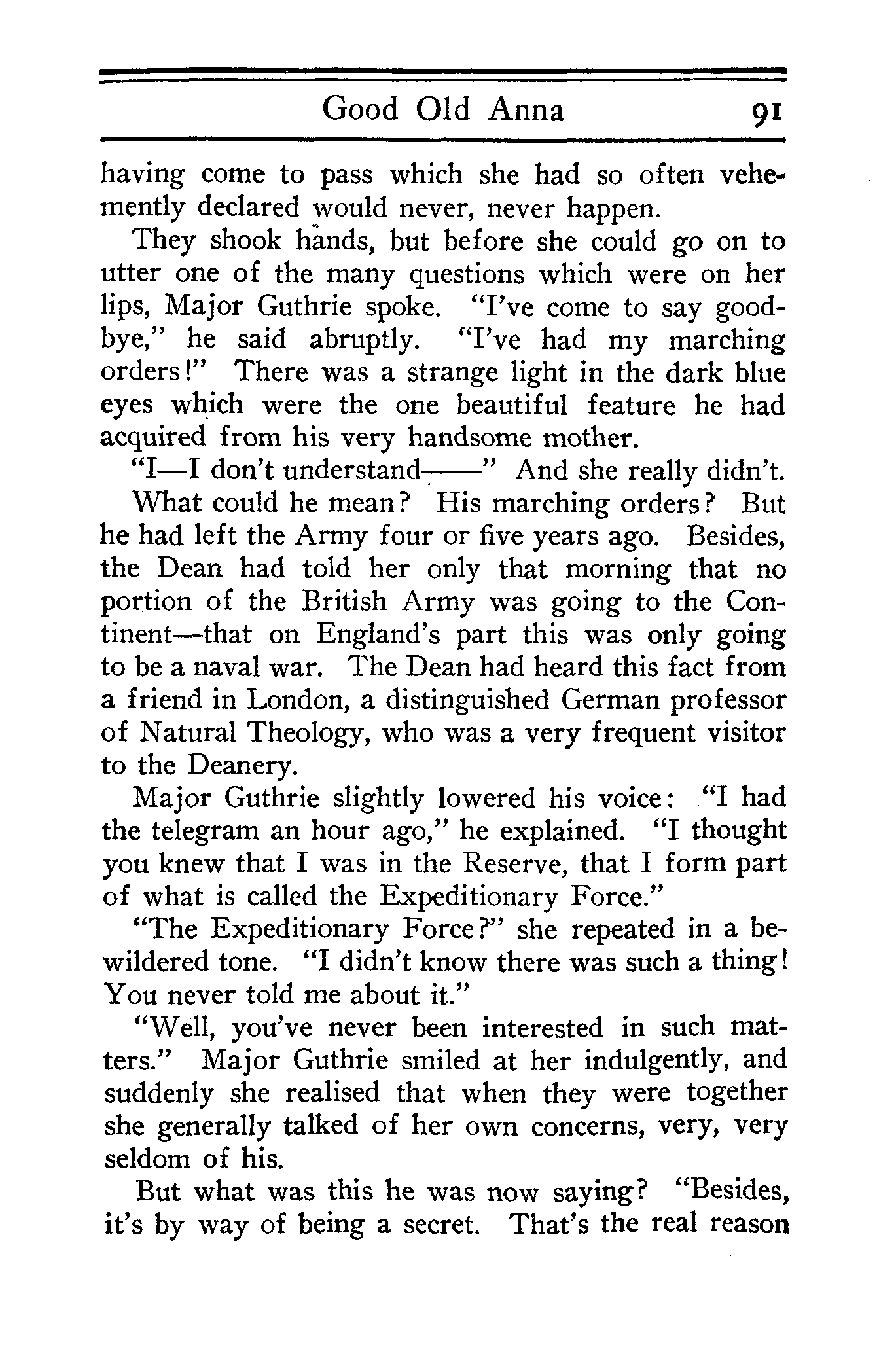 p090 _
-chap- _
toc-1 _
p091w _
toc-2 _
+chap+ _
p092
p090 _
-chap- _
toc-1 _
p091w _
toc-2 _
+chap+ _
p092
having come to pass which she had so often vehemently
declared would never, never happen.
They shook hands, but before she could go on to
utter one of the many questions which were on her
lips, Major Guthrie spoke. "I've come to say good-bye,"
he said abruptly. "I've had my marching
orders!" There was a strange light in the dark blue
eyes which were the one beautiful feature he had
acquired from his very handsome mother.
"I -- I don't understand----" And she really didn't.
What could he mean? His marching orders? But
he had left the Army four or five years ago. Besides,
the Dean had told her only that morning that no
portion of the British Army was going to the Continent --
that on England's part this was only going
to be a naval war. The Dean had heard this fact from
a friend in London, a distinguished German professor
of Natural Theology, who was a very frequent visitor
to the Deanery.
Major Guthrie slightly lowered his voice: "I had
the telegram an hour ago," he explained. "I thought
you knew that I was in the Reserve, that I form part
of what is called the Expeditionary Force."
"The Expeditionary Force?" she repeated in a bewildered
tone. "I didn't know there was such a thing!
You never told me about it."
"Well, you've never been interested in such matters."
Major Guthrie smiled at her indulgently, and
suddenly she realised that when they were together
she generally talked of her own concerns, very, very
seldom of his.
But what was this he was now saying? "Besides,
it's by way of being a secret. That's the real reason
[[91]]
p090 _
-chap- _
toc-1 _
p091w _
toc-2 _
+chap+ _
p092